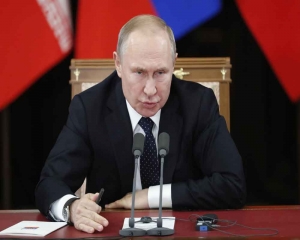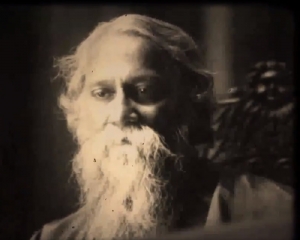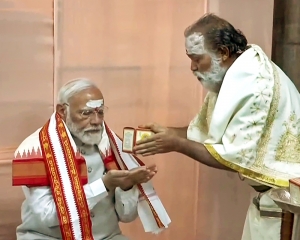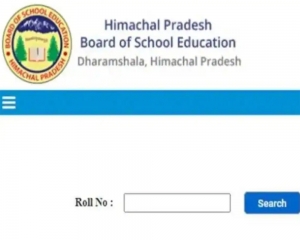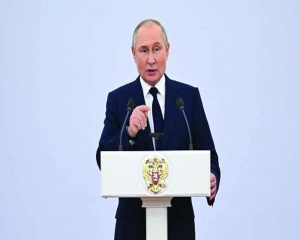Menstrual rights encompass not only access to hygiene products but also the eradication of discriminatory practices surrounding this natural biological phenomenon
Menstruation, a natural facet of human existence, has often been cloaked in stigma and silence. As we delve into the stories from Leh, it is crucial to understand the broader context of menstrual rights and the significance of these conversations. Menstrual rights include access to menstrual hygiene products, comprehensive education about menstruation, and the elimination of discriminatory practices associated with this natural biological process. The lack of awareness has fueled a culture of shame and secrecy.
In Leh, the conversation around menstruation has undergone a transformative journey. Traditionally, whispers among friends were the primary source of information for young girls, making it a taboo subject. However, today, strides have been made, enabling open discussions, particularly between mothers and daughters.
In Leh, the celebration of Menstrual Hygiene Day on May 28th, 2023, is a significant event. The event, exclusively held at a government girl's higher secondary school, reflects a pivotal shift. Surprisingly, on this day, not a single male presence is noted; only the cameraperson was a man. Why do we think that including men in this conversation isn’t important?
In Leh, most of the shopkeepers give pads wrapped in newspapers. Wrapping a pad in the newspaper is not a solution; rather, it perpetuates improper handling of menstrual products. There is a need for a more respectful and informed approach to changing societal norms and practices surrounding menstruation. Mutup Dolma, a 17-year-old from Hanu village, which is approximately 200 kilometres from Leh, shares her story about periods. In her hometown, it's not easy to talk openly about menstruation. People feel uncomfortable saying words like "periods" in public, and asking for pads from male shopkeepers is a challenge.
When Mutup moved to Leh for school, things changed. In Leh, she could buy pads without feeling awkward because people didn't know her. But in her hometown, cultural norms made talking about periods difficult. Mutup thinks it is very important to have an open conversation. "I got scared when I got my first period,” recalled Mutup. It was hard for her to understand what was happening until she talked to her mom. She mentioned, “When sometimes my mom isn't home, it is very difficult to ask for money from my father for menstrual products." Moving to Leh for education made it easier for her to buy menstrual products, but she realised the gap in awareness between urban and rural areas.
Hailing from Ibex Colony in Leh, Tsewang Namgyal, a 17-year-old boy, noticed something strange in his science class. Whenever their teacher explained the menstrual cycle, his friends would laugh. When he tried to tell them it was a biological process and shouldn't be mocked, they made fun of him. This laughter affected the girls in their class, making them feel embarrassed.
Going back to his village, Tsewang observed that his cousins were hesitant to discuss menstruation due to a lack of awareness.Jigmet Skit, a 19-year-old resident of Skara, Leh, shares her perspective on menstruation. Despite being part of many menstrual awareness programmes in school, she expresses discomfort due to the segregation of boys from these discussions. Jigmet believes that schools should create an open environment like home, fostering learning and awareness rather than perpetuating secrecy.
According to Jigmet, the awkwardness in society stems from the practice of hiding menstruation, especially in schools. She emphasises that women should openly share information to eliminate discomfort and encourage discussions about menstrual health. In her experience, when she gets her period, she is not able to go out for 3 days because of the pain, and it becomes difficult when they ask why she is not able to go out; it becomes difficult to answer her friends and even her father due to a lack of understanding. Jigmet hopes that breaking the silence and providing equal awareness will end the societal awkwardness around menstruation. This, she believes, will enable girls to share their problems openly and make it easier for everyone to endure.
Abdul Wahid, age 21, a resident of Shenam Leh, reflects on his school days when he and his friends lacked awareness about menstruation. He recalls an incident where they would check girls' bags and laugh at the sight of pads. However, upon moving to Delhi for studies, he noticed a stark difference in people's openness about menstruation.
Now, during his visits to Leh, Abdul actively helps his cousin's sister to buy pads, a task he once refused to do during his school days. He emphasises the importance of open conversations about menstruation, highlighting that knowledge about periods enables individuals to assist someone in need during menstruation. Stories from Mutup, Tsewang, Jigmet, and Abdul show the changes and challenges in understanding menstruation. Leh is making progress by celebrating Menstrual Hygiene Day and encouraging discussions. Despite this, there's still a need for better education about periods. Changing cultural norms and ensuring menstrual rights are essential for a society free from shame and secrecy.
(The writer is the winner of Sanjoy Ghose Media awards 2024; views are personal. Charkha Features)














